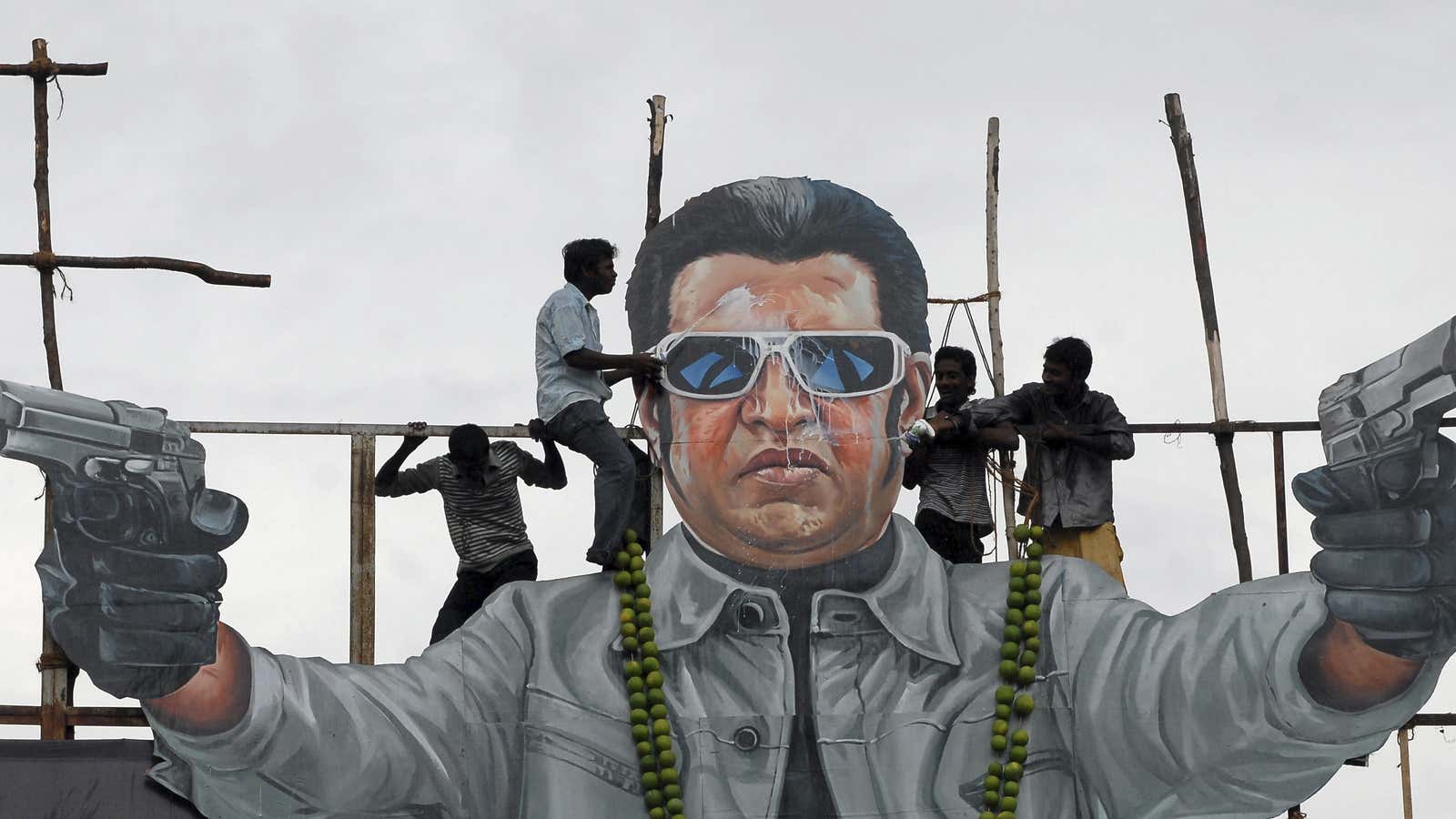Finance minister Arun Jaitley’s maiden budget last year, almost a month after the Narendra Modi government came to power, did very little to please India’s film industry.
For one, Jaitley completely ignored the subject of the industry’s longstanding demand for a rationalised tax structure. And, he did not propose any incentives to build new theatres, or suggest ways to control India’s rampant piracy.
This was despite a lineup of film celebrities actively campaigning for Modi during last year’s general elections.
This time, a pro-growth budget will surely help. After all, it is thanks to the burgeoning middle class and rising disposable incomes that footfalls in malls and multiplexes have exponentially increased.
Between 2010 and 2013, for instance, the total number of screens in India increased by 43%—led by Tier II and Tier III cities, where about 90% of screens were added in malls. The average ticket price also increased by 7-8% during this period.
While it still remains to be seen whether or not the Modi government obliges the film industry on Feb. 28, here is a quick wish list:
Service tax rollback
The multiple tax regime is a menace. From service and entertainment to property, water, show, electrical, hoarding, advertisement and value-added taxes, the Indian film industry pays it all.
In Maharashtra, where India’s film capital Mumbai is located, all these different taxes add up to as much as 61% of a film’s budget.
Service tax tops the list. Last year, Jaitley remained silent on a rollback or lowering of the service tax of 12.36% that producers pay to the central government. Service tax is usually charged on an actor’s or a film crew’s remuneration, thus inflating the cost of film production.
Time and again, the film industry has demanded from the government a reconsideration of the chunky service tax. In January 2013, the Tamil film industry rose up in protest, of which superstar Rajinikanth was a part.
So far, nothing has changed.
Uniform entertainment tax
Unlike service tax, the entertainment tax is collected on the whim and fancy of the state government.
For instance, Maharashtra levies a 45% entertainment tax on the gross ticket value, as compared to 30% in West Bengal or 110% in Jharkhand.
However, in West Bengal, only a 2% tax is levied if the film is in Bengali, and in Jharkhand, no tax is applicable for a state film.
Ironically, there are several states that end up charging a higher entertainment tax than taxes levied on the consumption of alcohol and tobacco, according to an Ernst & Young report (pdf).
High entertainment taxes translate to expensive tickets, creating a “price wall in a country…where a very, very small movie-goer base” goes to theatres, said Viacom18 Motion Pictures’ Ajit Andhare in an interview last year.
The central government needs to step in, and fully control the entertainment tax by bringing it under its purview through the proposed Goods and Services Tax (GST). In its budget analysis last year, the Federation of Indian Chambers of Commerce and Industry not only proposed removal of multiple taxes, but fully subsuming entertainment taxes in the GST.
Single-window clearance
What producers and filmmakers can really benefit from is a single-window for obtaining approvals from government authorities and procuring shooting permits.
Consider some of the clearances and approvals a film has to go through.
“Besides the national and regional clearances, filmmakers need to adhere to certain local laws of the state/city where shooting is to take place in India. The regulators may be various Municipalities and Municipal Corporations; Associations of Cinematographer, Make-up, Hair-dresser etc; state legislations like Tamil Nadu (Compulsory Censorship of Film Publicity Materials) Act 1987, West Bengal (Compulsory Certification of Film Publicity Materials) Act, 1974 etc.”
For a foreigner shooting in India, the process is even more long-drawn-out.
“Shooting of a feature film in India by a foreigner requires the prior approval of the ministry of information and broadcasting, or MIB (in case of documentary film, approval of the ministry of external affairs is required), either directly or through Indian Missions abroad. The film is required to be shot based on the script approved by the MIB. The MIB may depute a liaison officer to facilitate with the shooting of the film in India.”
In contrast, various countries provide film incentives, such as cash rebates, tax credits, easy visa processing, travel and stay discounts, and interest-free loans, to attract film producers to shoot in their respective country, as a recent Ernst & Young report noted.
